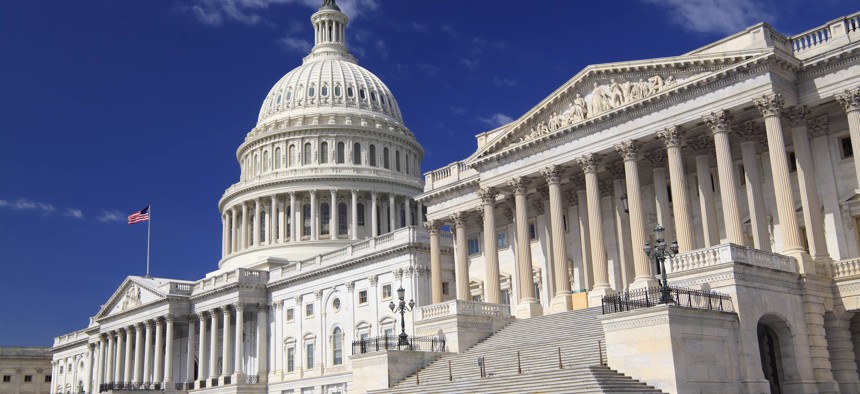Michigan Congressman on Muni Bond Tax Break: 'Municipal Governments Need to Speak Up'

The U.S. Capitol building in Washington, D.C. Shutterstock.com / Vlad G

Connecting state and local government leaders
The tax exemption is seen as a possible target for offsetting rate cuts as part of planned efforts to overhaul the federal tax code.
WASHINGTON — U.S. Rep. Dan Kildee says local government leaders interested in preserving the federal tax exemption for municipal bonds need to keep up the pressure on Congress.
Proposals to curtail the tax break are seen as a possibility as Republican lawmakers push ahead with an effort backed by President Trump to overhaul the U.S. tax code. Route Fifty caught up with Kildee after an event the National League of Cities held Tuesday and asked what he'd been hearing about the exemption.
"I haven’t seen any specific threat," Kildee said. "But the one thing we know for sure is that when they start getting into tax reform—we start getting into tax reform—any reduction in rates is either going to increase the deficit or have to be offset."
"What I worry about is: the squeaky wheels are going to be loud," he continued. "Municipal governments need to speak up and make sure that there’s not some desire to try to offset some rate cut by dealing with the exemption status for municipal bonds."
Kildee, a Michigan Democrat, serves as vice ranking member of the House Financial Services Committee. He also co-chairs the Congressional Urban Caucus and launched an initiative this year to look at how the federal government invests in cities and towns.
He described the prospect of turning to the municipal bond tax exemption to help offset changes in tax rates as a "huge mistake."
Preserving the income tax exemption for interest earned on "muni" bonds is a priority for many state and local leaders.
Backers of the exemption argue that it keeps interest rates down for states and localities, making it easier for them to borrow to finance infrastructure projects, like highways and waterworks.
Trump seemed to voice support for the tax exemption during a meeting with mayors shortly after he was elected. But, since then, state and local officials have been seeking assurances from the administration it will remain off limits during any tax code revamp.
Critics say the tax break costs the federal government money in foregone tax revenue, while benefiting investors. And some experts have raised questions about whether the exemption is the best way to subsidize infrastructure spending.
U.S. Treasury Department figures rank the muni bond exemption 15th on a list of federal income tax breaks and show it will put an estimated dent in federal revenues of around $31.9 billion in 2018.
Bill Lucia is a Senior Reporter for Government Executive's Route Fifty and is based in Washington, D.C.

NEXT STORY: Western Local Leaders: Federal Payments for Tax-Exempt Lands Not a ‘County Welfare Program’





